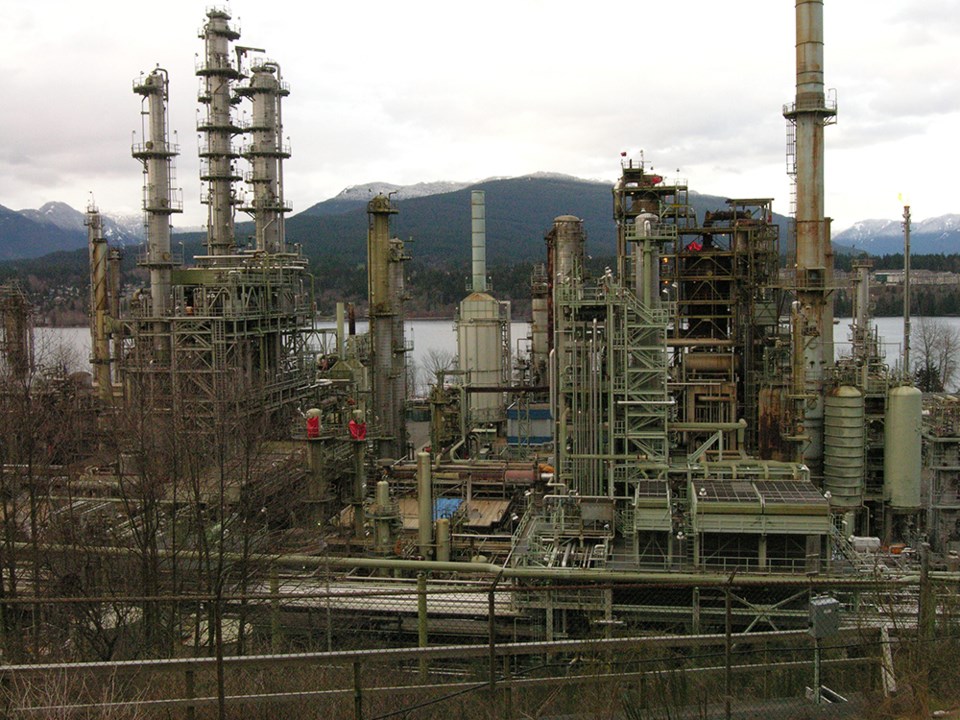The union representative for Chevron's refinery workers isn't convinced the National Energy Board is doing all it can to stop U.S. refineries from putting the squeeze on local oil supply.
The NEB released a tariff decision last week that would require Washington refineries to ensure they aren't asking for more than their fair share of oil from Kinder Morgan's Trans Mountain pipeline, but Chevron's union rep isn't convinced the new measures will work.
"We had some hope the NEB was going to step in and do what they're supposed to do, which is regulate and protect Canada's interests," said Russ Day, president of Unifor Local 601. "It's pretty clear they are tipping the hand in favour of Washington refineries."
Day is the union representative for roughly 150 workers at the Burnaby refinery, which uses Kinder Morgan's Trans Mountain pipeline to ship its oil supply from Alberta to Burnaby.
Chevron's supply problem, according to Day, started three or four years ago, when Washington refineries started using cheaper Alberta oil, which was roughly $20 a barrel less that the Alaskan supply they typically process. Kinder Morgan's Trans Mountain pipeline is the only line running oil from Alberta to the West Coast, and the Washington refineries started competing for space on the line, leaving less supply for Chevron.
"We found out the Washington State refineries were playing a game," Day said. "They ask for twice as much oil as they need."
It's a game Chevron can't play, since there's no storage capacity at the north Burnaby refinery, so if Chevron overbids and actually receives the extra oil, there's no place to put it.
The NEB's recent decision would limit shipping volumes for Washington refineries, based on how much oil they've historically shipped, in an attempt to make the process more fair. The refineries also have to issue an "officer's certificate," which is basically a piece of paper saying the company actually needs the volume of oil it's requesting.
Unifor lawyer Steven Shrybman said the basic architecture of the tariff puts the smaller Burnaby refinery at a disadvantage, and the NEB's latest decision doesn't change much.
"Throughout, the position of the U.S. refineries is more or less kept in tact. They have this unfair advantage because they are bigger and they can bid for oil they've never used in the past," he told the NOW.
Sarah Kiley, spokesperson for the NEB, said Chevron - the actual company, not the refinery's union - supported the proposal.
"I think it's quite clear he (Shrybman) simply doesn't agree with the decision we've made, and it's not usual for parties to not agree with all of the decisions we release," she said.
Kiley said the board members reviewed facts of the case and felt the decision was fair for all involved.
"Of course we are looking out for Canadian interests, that is our purpose. We heard from a number of different companies, and we found this approach was fair an equitable for all of the shippers on the pipeline," she said.
Chevron has been shipping oil in by rail, which is more expensive, to make up for the pipeline shortage.



